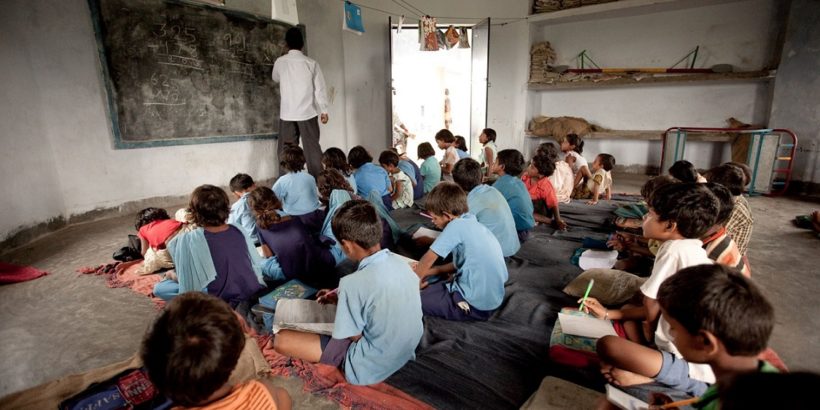When we speak about typhoid, we often think about the children and adolescents felled by the infection. We think about them falling ill and missing school. We think about their parents and caregivers who take time away from work to seek medical care, who may have to pay fees for private care or antibiotics. We think about the impact on families, but we rarely think about the impact of teachers.
School teachers also bear the burden of typhoid, whether by working to help children who have missed weeks of school due to typhoid get caught up with their lessons, falling ill themselves, or helping to identify symptoms among their students as infections occur.
We have seen outbreaks clustered near schools where safe water may not be accessible and sanitation facilities are often lacking. India and Zimbabwe have both reported typhoid cases clustered among children who attend the same school. The Neno District of Malawi has suffered through two typhoid outbreaks in which children from the same school fell ill.
In these instances we focus on the children falling ill and the importance of keeping young children and adolescents healthy. We often overlook the teachers who are working in an environment with inadequate sanitation facilities and helping to support sick children.
Yet teachers are also uniquely placed to model and enforce typhoid prevention behaviors such as handwashing and safe sanitation habits for their students. Teachers are trusted members of communities and play a powerful role as messengers in the classroom, and they can become leaders for typhoid control strategies if we involve them in the conversation. Teachers hope for their students to excel and in some cases, go to great lengths to ensure children have access to safe water, stay healthy, and are able to learn.
Last week, on Friday October 5, we gave our world’s teachers a special day. World Teacher’s Day is a moment to pause and think about the teachers and the impact they have on children, communities, and the future. As a global health community, we need to see teachers not just as imparters of academic lessons, but as respected disseminators of key health messages who can help shape perspectives and behaviors about diseases like typhoid. When equipped with the right tools and information, teachers are some of the world’s best messengers.
In the effort to take on typhoid with integrated water, sanitation, and hygiene plus immunization solutions, teachers are some of our best advocates. They see first-hand the devastating effects that typhoid can have on their students; in some instances, it’s also a personal experience. They understand that prevention is paramount for keeping children healthy, and one of the best ways to do that is through vaccines. A new, World Health Organization-prequalified and recommended typhoid conjugate vaccine is available, ready to keep children protected against typhoid so they remain in school, learning, and growing.
Here’s to our world’s teachers, their power to change lives, and the pivotal role they play for our children.
Photo Credit: Sabin Vaccine Institute/Esther Havens



